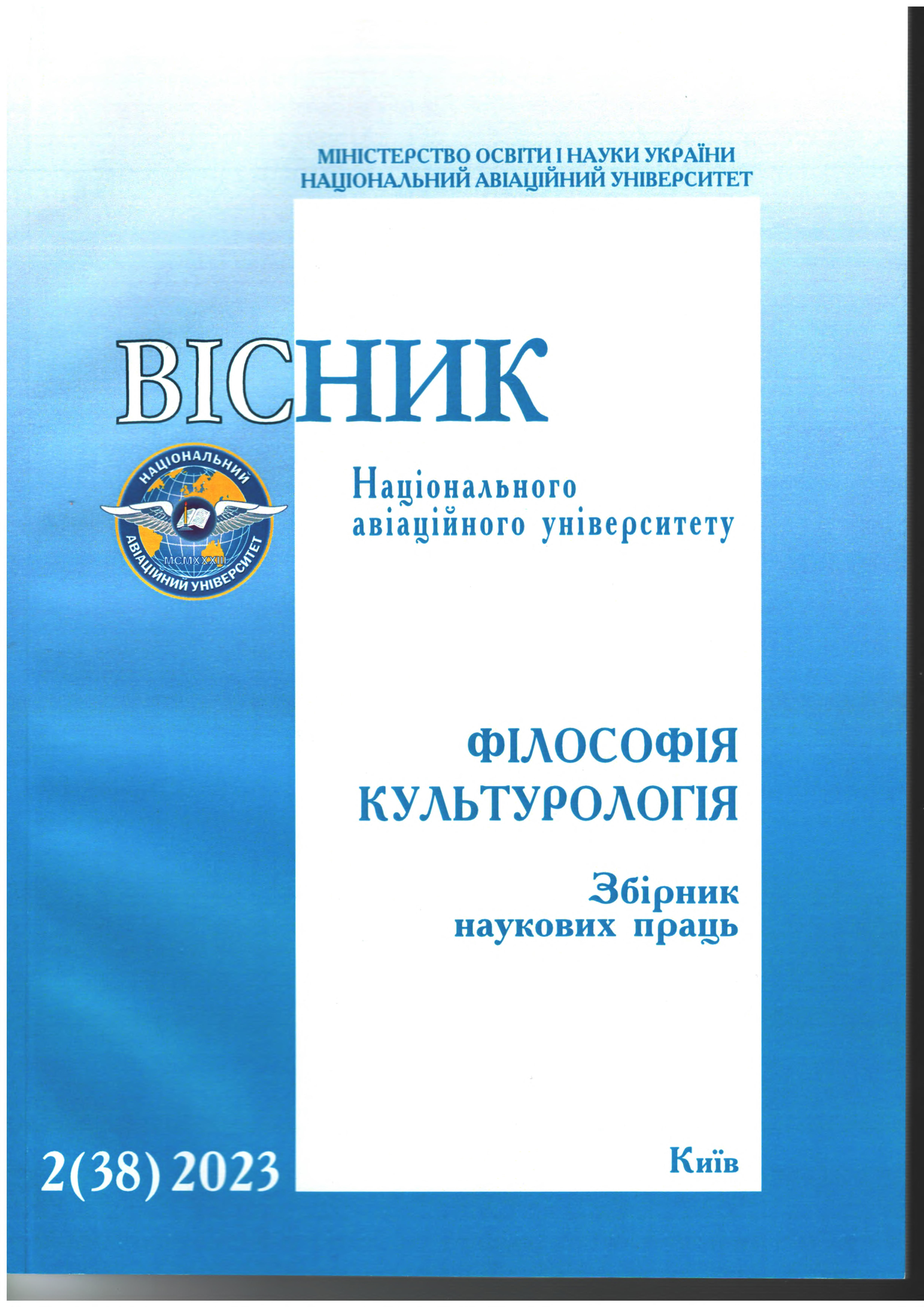THE SIGNIFICANCE OF THE TRANSCENDENT IN INTEGRAL TRADITIONALISM AND ORTHODOX PHILOSOPHICAL AND THEOLOGICAL THOUGHT
DOI:
https://doi.org/10.18372/2412-2157.2.18113Keywords:
Integral Traditionalism, Orthodox philosophical and theological thought, transcendent, immanent, holistic knowledge, metaphysics, spiritual revelationsAbstract
Introduction. Both Integral Traditionalism and Orthodox philosophical and theological thought are characterized by an orientation
towards the perception of the transcendent (in terms of religion – the divine) dimension. This fact determines the relevance of the
chosen topic.The aim and tasks. The study aims to analyze the philosophy of Integral Traditionalism and Orthodox philosophical and
theological thought defining the role of the transcendent dimension and the specific features of it in each of the above-mentioned
worldviews. Research methods. Content analysis of the basic works of the Integral Traditionalism philosophers and Orthodox theologians is the main method used during this study. We focused on identifying and generalizing the ideas of the above-mentioned worldviews about the phenomenon of the transcendent and determining its role and place in each of them. The application of this method also makes it possible to identify common features and differences in the idea of the transcendent in Integral Traditionalism and Orthodox philosophical and theological thought and to determine how compatible they are with each other and whether it is possible to apply some of the conclusions, formulated by the representatives of integral traditionalism, to research on the Orthodox religious worldview. Research results. Our research resulted in defining three main similarities between the view of the transcendent in Integral Traditionalism and Orthodox philosophical and theological thought: – the vertical axis of sacred knowledge transmission, – the holistic nature of knowledge obtained as a result of spiritual revelations, – the desire to find the harmony of human condition with the divine plan for it and the transcendent Deity itself. Discussion. The attitude towards the transcendent dimension in Orthodox philosophical and theological thought fully corresponds to the general patterns revealed by the representatives of the Integral Traditionalism philosophical school for all sacred traditions. At the same time, emphasizing the role of the immanent in the Orthodox religious worldview serves only to underline the importance of a person's ability to perceive a vertical connection with the transcendent God. Conclusions. During our research, we came up with a conclusion about the complete compatibility and complementarity of the Orthodox-theological and integraltraditionalist views of the transcendent dimension.
References
Evola J. Revolt against the Modern World. Rochester, Vermont: Inner Traditions International, 1995. 406 P.
Guenon R. Perspectives on Initiation. Ghent, NY: Sophia Perennis, 1946. 302 P.
Istodor G. Transcendent and Immanent in the Orthodox Theology. Dialogo. Conferences and Journal. 2015. № 2.2. P. 45-54.
St. John Damascene. The Fount of Knowledge. Rev. G. N. Warwick of the Plato. The Republic. London, Oxford, New York:
Oxford University Press, 1970. 320 P.
Богатирьов Д. В., Чорноморденко І. В. Щодо ієрархії у інтегральному традиціоналізмі та православній філософсько-
богословській думці. Мультиверсум. Філософський альманах. 2022. № 1 (175). С. 194-211.
Богатирьов Д. В., Чорономорденко І. В. Соціальна справедливість як проблема філософування: матеріали міжнародної наукової конференції. Глобальні трансформації у сфері культури: виклики сьогодення. Львів: Львівський національний університет імені Івана Франка, 2021. С. 32-35.
Plato. 1970. The Republic. London, Oxford, New York: Oxford University Press.

